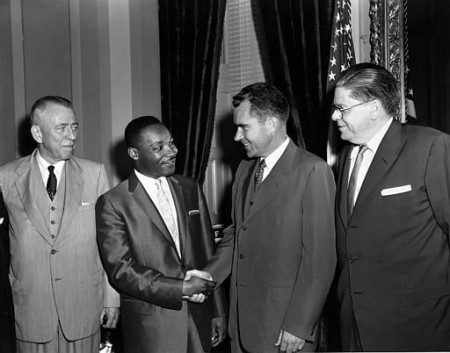jon_berzerk
Platinum Member
- Mar 5, 2013
- 31,401
- 7,369
- 1,130
MLK entered Crozer in 1948. It was an integrated Theological Seminary. His grades the first year were mediocre. By his third year he was a straight A student. He was voted class President by a mostly white student body. He was valedictorian.
In 1951, the year of Kings graduation from Crozer, Dean Charles Battan praised him as one of our most outstanding students and someone who exhibited fine preparation, an excellent mind, and a thorough grasp of the material (Papers 1:390391).
King graduated from Crozer with honors as class valedictorian, and was also the recipient of the Pearl Plafker award for scholarship.
Course Grade
American Christianity A
Religious development of personality A
The minister's use of the radio A
Philosophy of religion A
Theological integration A
Advanced philosophy of religion A
Christian social philosophy ll A
Christianity and society A
The Crozer Years
interesting photo of MLK and Nixon

Dr. Martin Luther King Jr.s meeting with Vice President Richard Nixon in 1957. They met on Capitol Hill for a discussion of ways to overcome Democrat opposition to the Republican civil rights agenda.
http://grandoldpartisan.typepad.com/blog/2012/01/martin-luther-king.html